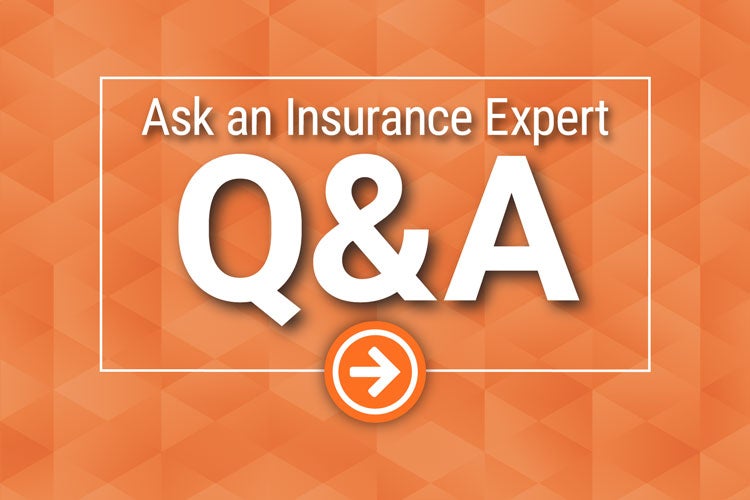
Table of Contents
- How does an umbrella insurance policy work in Florida?
- What is covered under a Florida umbrella insurance policy?
- What will qualify me for umbrella coverage in Florida?

How does an umbrella insurance policy work in Florida?
I just purchased Florida auto insurance, Florida homeowners insurance, and Florida umbrella insurance, but I’m still a little confused about how my umbrella policy works and when I might need it. When does my personal umbrella policy cover me, and when does it not cover me? What types of incidents will my Florida umbrella policy cover?

Before you understand what your Florida umbrella insurance policy covers, it’s important to understand what liability insurance is. If you have auto insurance, homeowners insurance, renters insurance, or Florida condominium insurance, you also have liability insurance as an essential part of those policies.
Liability insurance protects you when you or a covered family member causes some type of property damage or physical injury to another person. So your auto liability insurance covers you if you cause a car accident that injures another driver or passenger. And your home liability insurance covers you if someone is injured at your home, or if you or covered family member hurts someone or damages someone’s property (e.g., your child breaks the neighbor’s window with a baseball).
Liability insurance pays for repairing or replacing damaged property of others. It also pays for medical expenses for injured parties, and it even pays your attorney fees, court costs, and any financial settlements or judgments that you have to pay if you are sued. But both your auto insurance and your home insurance have coverage limits that are specified in the policy. If you’re sued, your policy limits may not be sufficient to cover a large financial settlement.
A Florida umbrella policy offers excess liability coverage that kicks in when the limits of an underlying policy — including homeowners insurance, renters insurance, condominium insurance, boat insurance, or auto insurance — have been exhausted.
So if you cause a car accident in which another driver is injured and you are sued as a result, you might have to pay a court-ordered judgment to the injured party. If your auto insurance bodily injury liability limit is $500,000, but the injured person is awarded $1,000,000 for their injuries, pain, and suffering, your umbrella insurance would pay the excess $500,000 of the judgment and any other covered legal fees or related expenses that exceed the limits of your auto insurance policy.

What is covered under a Florida umbrella insurance policy?

Umbrella policies in Florida typically offer “follow form" coverage. This means that the umbrella policy covers what the underlying policy does. Florida umbrella insurance typically covers the following types of claims for any person who is covered under the primary insurance:
- Personal injury
- Advertising injury
- Property damage liability
- Slander
- Libel
- Defamation of character
- False arrest, detention, or imprisonment
- Malicious prosecution
- Mental anguish
Your umbrella policy may offer coverage for certain losses that are not covered by the underlying policies, including covering you worldwide. So if you cause a car accident while driving abroad, your Florida auto insurance policy might not cover you, but your umbrella policy would.
Here are some examples of where Florida umbrella insurance coverage kicks in:
- You cause a car accident that results in serious injuries for the other driver. The other driver is hospitalized, resulting in hundreds of thousands of dollars in medical bills. What’s more, the driver sues you for lost wages, and pain and suffering. Your auto insurance bodily injury liability coverage is limited to $350,000, but the injured party takes you to court and is awarded a $2 million financial payout. You have a $2 million personal umbrella policy that kicks in and pays the remainder of your expenses after the limits of your auto insurance policy have been exhausted.
- A neighbor child wanders into your swimming pool unattended. The child dies after a lengthy hospital stay. The parents sue you for medical bills, and pain and suffering. Your home insurance liability coverage is limited to $500,000, but the parents are awarded $2 million. After the $500,000 limit is reached, your $2 million personal umbrella policy kicks in to cover the rest of the settlement in addition to your legal fees and other costs related to the lawsuit.

What will qualify me for umbrella coverage in Florida?

Umbrella insurance policies in Florida kick in only when the limits of the applicable underlying policies have been exhausted. They are typically sold in million-dollar increments, such as $1 million, $2 million, or $5 million.
You need to have a certain level of underlying Florida home and auto insurance in order to purchase an umbrella policy — so if you don’t have auto and home insurance, you won’t be able to buy Florida umbrella coverage.
Underlying coverage requirements may vary somewhat depending on the insurance company, but typically they are:
Auto Insurance
- Bodily injury liability coverage of $250,000 per person/$500,000 per accident
Homeowners insurance
- Personal liability coverage of $300,000
Some umbrella insurance providers require you to have your auto and homeowners insurance with them before they will issue you an umbrella policy.
Article Reviewed by | Paul Martin